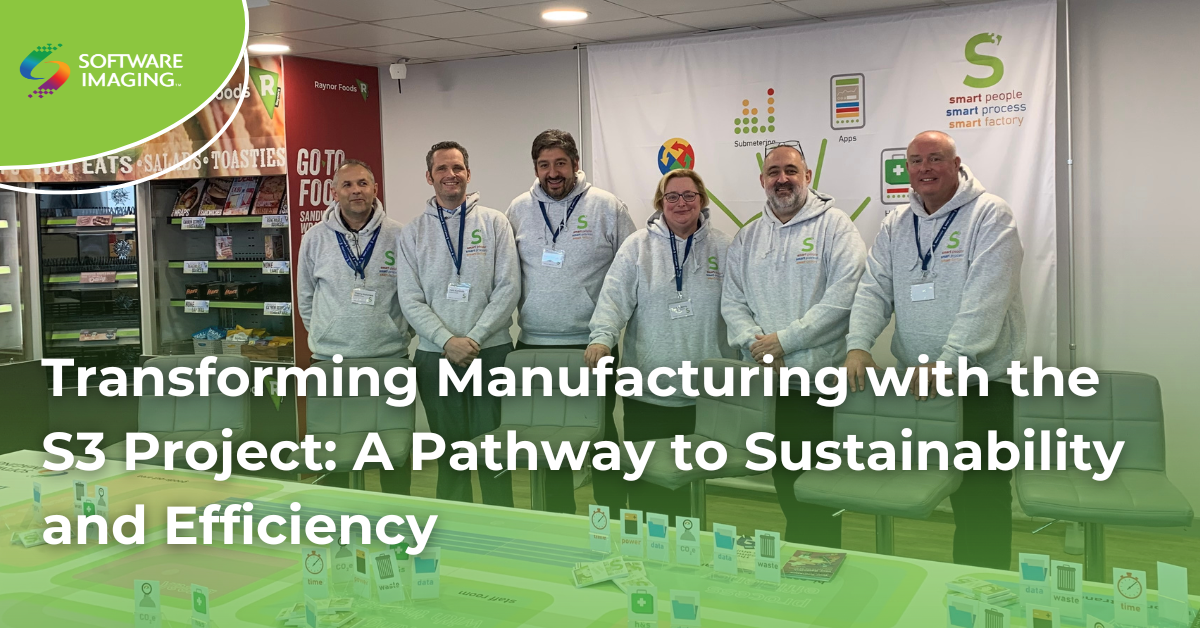The S3 Project is redefining sustainable manufacturing by cutting emissions and enhancing efficiency through innovation.
In the face of escalating climate challenges and dynamic energy markets, the manufacturing sector is at a pivotal juncture. Innovative solutions are needed to reduce carbon footprints and align with evolving regulatory demands and consumer expectations. Enter the S3 Project—a groundbreaking collaboration spearheaded by Raynor Foods, Software Imaging, the University of Lincoln, and the University of Cambridge’s Institute for Manufacturing. This initiative represents a pioneering leap towards sustainable, efficient manufacturing, embedding advanced technology into real-world applications.
About the S3 Project
The S3 Project (Smart People • Smart Process • Smart Factory) is a world-first technological tool, poised to revolutionize manufacturing by significantly reducing carbon emissions and operating costs. Conceived through a unique consortium of academic and industrial expertise, S3 addresses the pressing sustainability and cost challenges within UK manufacturing industries.
As regulations like the Streamlined Energy and Carbon Reporting policy (SECR) tighten, and consumer demand for sustainable practices grows, S3 technology plays a crucial role in making emissions processes transparent and enhancing tangible savings. Utilizing cutting-edge micro-monitoring, AI-driven data analysis, and comprehensive workforce involvement, the project aims to optimize energy and water use, minimize waste, and streamline production methods for lasting efficiency improvements.
Innovative Technology and Methodology
The S3 Smart Factory integrates advanced technologies to provide real-time greenhouse gas emission footprinting and operational insight. Key features include:
- Intensive Sub-Metering and AI Analysis: Enables precise data gathering and intelligent analysis to identify opportunities for energy reduction.
- Millimetre-Grained Ultra-Wideband Mesh: Offers real-time location tracking, optimizing logistics and production flow.
- Gamification of Operations: Engages the workforce by rewarding efficiency and compliance, fostering a culture of innovation and sustainability.
- Digital Twin Factory: Tracks carbon emissions in real time, demonstrating significant reductions at Raynor Foods’ Chelmsford site.
Why the S3 Project Matters
Meeting the UK government’s 2030 carbon emissions data requirements demands innovation and rigor. S3’s scalable, adaptable framework offers a future-proof solution that minimizes disruption and supports compliance with Scope 1, 2, and 3 emissions reporting.
Headline Achievements
The S3 Project has already demonstrated remarkable outcomes within its first operational months:
- 15% reduction in energy usage and emissions, with plans to exceed 30%.
- Equivalent CO2 savings of 34 tons—comparable to traveling three-quarters around the world by road.
- Up to £50,000 monthly savings on energy bills per Kwh/unit produced.
- Over 90% reduction in overproduction.
- 25% improvement in picking accuracy.
- 80% reduction in Time and Attendance management.
The S3 Project exemplifies how strategic partnerships and innovative technologies can reshape industries for a more sustainable future. By driving efficiency and reducing emissions, the initiative not only addresses pressing environmental concerns but also positions participating organizations as leaders in the global movement towards sustainable manufacturing. As S3 continues to evolve, it sets a benchmark for the industrial sector, inspiring others to follow suit and embrace the transformative power of technological innovation.
Join us on this journey to a greener, more efficient future—a testament to what collaboration and innovation can achieve.
